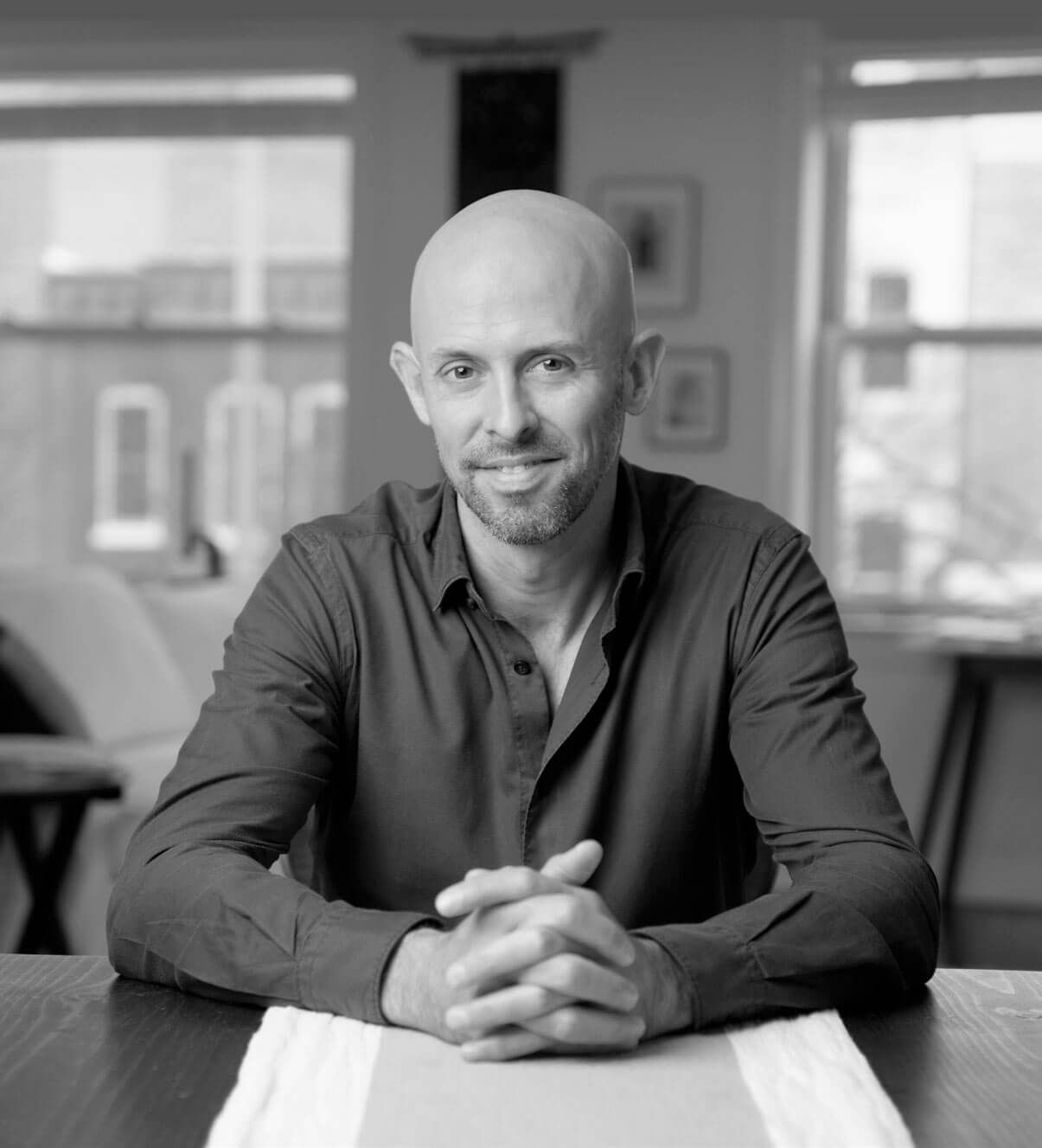Steven Babitch, Former Presidential Innovation Fellow
By Steve Hendershot
October 3, 2022

Steven Babitch (MDes 2007) is a practitioner of human-centered design, which means he specializes in cultural translation: He walks into big, complex organizations that are struggling to understand the people they serve—from United Airlines to the Mayo Clinic and the Federal Bureau of Investigation—and works with them until the lightbulb turns on. Then he builds the path forward.
Babitch, 47, honed his craft as a graduate student at the Institute of Design. But his interest in building connections across cultures dates back to his days as a childhood tennis star in 1980s Detroit. As he shuttled back and forth between suburban country clubs and city courts, “it baked into me this notion of empathy, and on seeing challenges from different perspectives and contexts,” Babitch says.
That has become his defining skill as a designer. Large organizations, despite their best intentions, can lose sight of their customers amidst a tangle of stakeholders, departments, and priorities. Babitch helps them refocus on what’s most important.
“It’s something all organizations of this size and scale ultimately grapple with, and the challenge is just to cut through the clutter,” Babitch says.
On a project to reimagine the online customer experience for health insurer Humana, for example, Babitch’s breakthrough was to gather leaders from across the organization and to show them a map of the customer journey. The map included a maze of overlaps and repeated steps, and produced a company-wide “aha” moment. From there, Babitch says, everyone united around the goal of a streamlined, intuitive customer experience.
Designing a successful user experience often involves translating user feedback into engineer-friendly insight, so part of Babitch’s design skill owes to his background: He earned an undergraduate degree in engineering from the University of Michigan in 1997, then worked in engineering sales for several years before transitioning to product strategy and design. He interned at global design agency Doblin while studying at ID, and joined the firm full-time upon graduation in 2007.
It was at Doblin, and then another Chicago-based agency, IA Collaborative, where Babitch built a reputation as a product strategist capable of delivering innovative solutions amidst complex circumstances. One standout project was a redesign of the United Airlines website and mobile app; another involved working with the World Bank to launch an incubator supporting Brazilian agriculture technology startups. Babitch also helped the Mayo Clinic in Rochester, Minnesota, develop a Center for Innovation designed to encourage advances in health care delivery.
Babitch showed an “ability to synthesize a lot of information into themes and ideas that people could understand and act on,” says Matthew Maleska, a former design manager at the Center for Innovation.
Those successes inspired Babitch to test his skills at perhaps the epicenter of organizational complexity: the United States federal government. In 2015 he became a White House Presidential Innovation Fellow, moving from Chicago to Washington, D.C., to join a nascent program that aimed to inject design thinking and modern product techniques into the intractable world of Beltway bureaucracy. He was assigned to the FBI and tasked with developing a portal through which it could share threat intelligence with American corporations at risk of cyberattacks, economic espionage, or other schemes.
Before building the portal, however, Babitch took a step back. He looked at what the FBI was hoping to achieve through the project, with an eye toward evaluating whether a portal-style platform was the right solution to address those goals. He also interviewed corporate stakeholders, gaining crucial insight into their contexts and perspectives—learning, for example, that some weren’t keen to apply for the government security clearances that would be required to access classified information, while others didn’t believe a portal would solve the problem because of the security risks it would pose. Many companies already received similar information based on contracts with private cybersecurity companies, but it remained clear that the FBI had a unique value proposition.
Babitch “was hyper-focused on the idea of delivering a solution that was amenable to both the private sector and the US government,” says M. K. Palmore, a retired assistant special agent in charge of the FBI’s San Francisco field office. “It was refreshing to have someone take an approach that wasn’t the typical government approach bogged down by historical frameworks, which ultimately decreases the government’s ability to be responsive and agile.”
Babitch convinced the FBI to scrap the portal, and began a new project focused on building an alternate threat-intelligence offering that corporations would find more valuable, especially when considered alongside the solutions offered by private security vendors. The process included dozens of interviews with corporate and other stakeholders ranging from executives to line-level security personnel. Applying a lean, agile approach, the resulting product and strategy started small and focused on serving the needs of a small set of technology companies of particular importance to the FBI, and has since expanded. Security concerns prevent Babitch from going into detail regarding that solution, but it seems to be a hit: In 2017 Babitch received a commendation from FBI Director Christopher Wray for Exceptional Service in the Public Interest based on his work.
So while the Presidential Innovation Fellowship is typically a one-year commitment, Babitch stayed four years. He planned at that point to return to private-sector work in 2019, but changed course when asked to become head of artificial intelligence within the General Services Administration’s Technology Transformation Services division. In that role, Babitch worked to foster the adoption of AI across the government, establishing a resource-sharing community that now includes 1,500 people.
Babitch finally left the government last fall and is now pursuing a private-sector role, and he says his interest in developing the right product strategies and helping small companies and startups get to product-market fit in complicated contexts hasn’t wavered.
“There are challenges to working in a highly complex domain, but those are also often the places where you can have a larger impact,” he says.